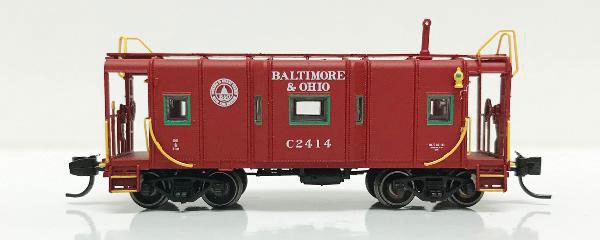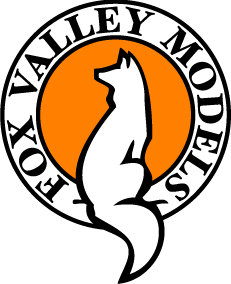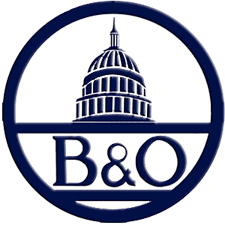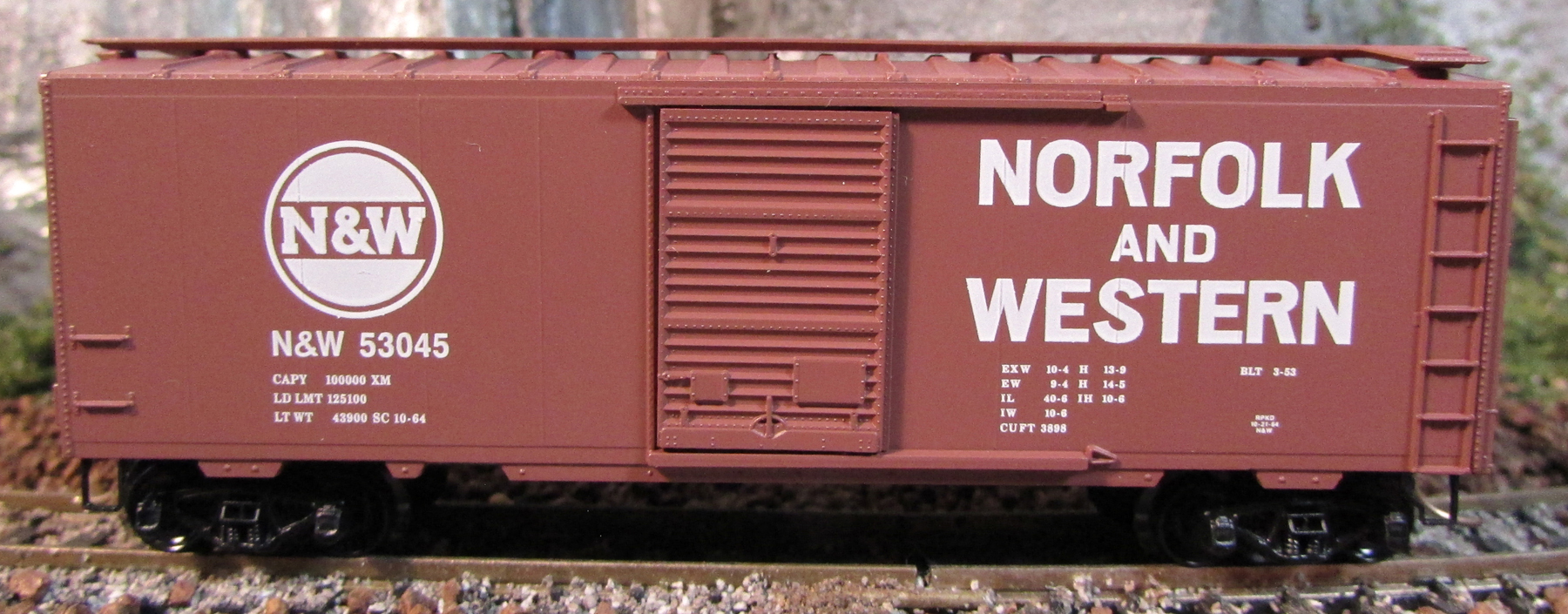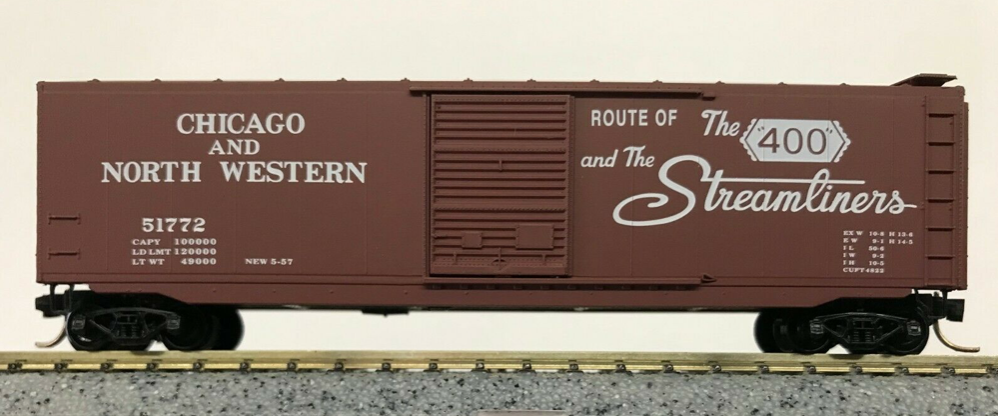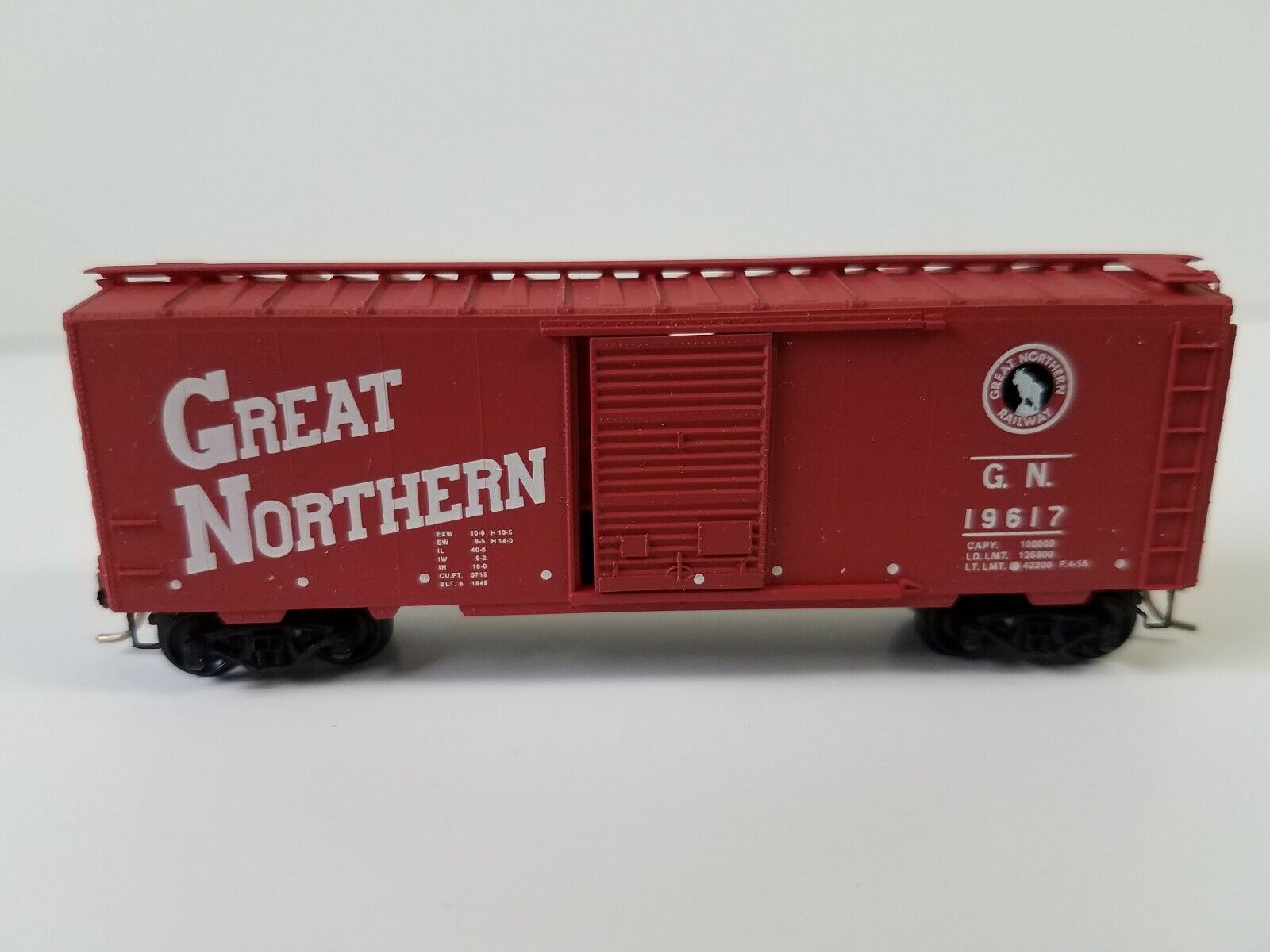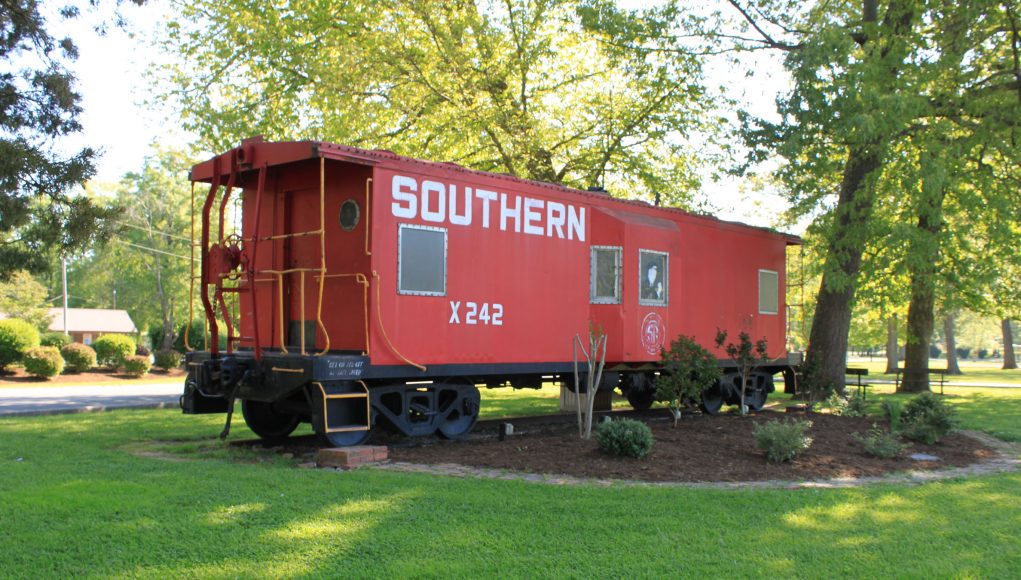Model Information: This Fox Valley Models Caboose was first introduced in November of 2017. It is a beautiful model with metal wheels, body mount MTL couplers and excellent detail and paint work.
Prototype History: In a bay window caboose, the crew monitoring the train sits in the middle of the car in a section of wall that projects from the side of the caboose. The windows set into these extended walls resemble architectural bay windows, so the caboose type is called a bay window caboose. This type afforded a better view of the side of the train and eliminated the falling hazard of the cupola. The bay window gained favor with many railroads because it eliminated the need for additional clearances in tunnels and overpasses. On the west coast, the Milwaukee Road and the Northern Pacifc Railway used these cars, converting over 900 roof top cabooses to bay window cabooses in the late 1930's. Milwaukee Road rib-side window cabooses are preserved at New Libson, Wisconsin, the Illinois Railway Museum, the Mt. Rainer Scenic Railroad, and Cedarburg, Wisconsin.
When the shift was made from wooden to steel caboose construction, a new type of caboose also arrived. The new caboose design replaced the traditional roof-mounted “cupola” with “bay-windows” attached to the sides of the caboose. As freight cars grew taller, the effectiveness of cupolas as practical observation points was diminished. This was especially true on lines that suffered from low clearances and were incapable of making cupolas high enough to see over the top of the tallest freight cars. Cabooses were prone to rough handling, and many a trainman was knocked out of his perch in the cupola and injured when he fell. The new caboose design was safer as well as more effective.
When the shift was made from wooden to steel caboose construction, a new type of caboose also arrived. The new caboose design replaced the traditional roof-mounted “cupola” with “bay-windows” attached to the sides of the caboose. As freight cars grew taller, the effectiveness of cupolas as practical observation points was diminished. This was especially true on lines that suffered from low clearances and were incapable of making cupolas high enough to see over the top of the tallest freight cars. Cabooses were prone to rough handling, and many a trainman was knocked out of his perch in the cupola and injured when he fell. The new caboose design was safer as well as more effective.
Road Name History: The Baltimore and Ohio Railroad (reporting marks B&O, BO) is one of the oldest railroads in the United States and the first common carrier railroad. It came into being mostly because the city of Baltimore wanted to compete with the newly constructed Erie Canal (which served New York City) and another canal being proposed by Pennsylvania, which would have connected Philadelphia and Pittsburgh. At first this railroad was located entirely in the state of Maryland with an original line from the port of Baltimore west to Sandy Hook. At this point to continue westward, it had to cross into Virginia (now West Virginia) over the Potomac River, adjacent to the confluence of the Potomac and Shenandoah rivers. From there it passed through Virginia from Harpers Ferry to a point just west of the junction of Patterson Creek and the North Branch Potomac River where it crossed back into Maryland to reach Cumberland. From there it was extended to the Ohio River at Wheeling and a few years later also to Parkersburg, West Virginia.
It is now part of the CSX Transportation (CSX) network, and includes the oldest operational railroad bridge in the USA. The B&O also included the Leiper Railroad, the first permanent horse-drawn railroad in the U.S. In later years, B&O advertising carried the motto: "Linking 13 Great States with the Nation." Part of the B&O Railroad's immortality has come from being one of the four featured railroads on the U.S. version of the board game Monopoly, but it is the only railroad on the board which did not serve Atlantic City, New Jersey, directly.
When CSX established the B&O Railroad Museum as a separate entity from the corporation, some of the former B&O Mount Clare Shops in Baltimore, including the Mt. Clare roundhouse, were donated to the museum while the rest of the property was sold. The B&O Warehouse at the Camden Yards rail junction in Baltimore now dominates the view over the right-field wall at the Baltimore Orioles' current home, Oriole Park at Camden Yards.
At the end of 1970 B&O operated 5552 miles of road and 10449 miles of track, not including the Staten Island Rapid Transit (SIRT) or the Reading and its subsidiaries.
Read more on Wikipedia.
It is now part of the CSX Transportation (CSX) network, and includes the oldest operational railroad bridge in the USA. The B&O also included the Leiper Railroad, the first permanent horse-drawn railroad in the U.S. In later years, B&O advertising carried the motto: "Linking 13 Great States with the Nation." Part of the B&O Railroad's immortality has come from being one of the four featured railroads on the U.S. version of the board game Monopoly, but it is the only railroad on the board which did not serve Atlantic City, New Jersey, directly.
When CSX established the B&O Railroad Museum as a separate entity from the corporation, some of the former B&O Mount Clare Shops in Baltimore, including the Mt. Clare roundhouse, were donated to the museum while the rest of the property was sold. The B&O Warehouse at the Camden Yards rail junction in Baltimore now dominates the view over the right-field wall at the Baltimore Orioles' current home, Oriole Park at Camden Yards.
At the end of 1970 B&O operated 5552 miles of road and 10449 miles of track, not including the Staten Island Rapid Transit (SIRT) or the Reading and its subsidiaries.
Read more on Wikipedia.
Brand/Importer Information: Fox Valley Models is a small supplier of
model railroad and related products. FVM
started by finding solutions to different
challenges that model railroaders were
faced with. Our first products resulted
from a need to equip custom built
passenger cars with tinted windows made
of an ideal material; thin, flexible, easy to
cut, simple to install, available in multiple
colors and be affordable. We met those
needs and even included a frosted
version for the car's lavatory windows.
Other challenges inspired additional products including wooden grade crossings, trestles and different lineside structures. As our product line expands, input and requests from friends and customers help shape the product selection further.
Future products, under development, include more parts, structures, details and rolling stock. We strive to offer a good quality product at an affordable price.
Other challenges inspired additional products including wooden grade crossings, trestles and different lineside structures. As our product line expands, input and requests from friends and customers help shape the product selection further.
Future products, under development, include more parts, structures, details and rolling stock. We strive to offer a good quality product at an affordable price.
Item created by: CNW400 on 2018-12-04 11:04:50. Last edited by CNW400 on 2020-05-26 17:34:02
If you see errors or missing data in this entry, please feel free to log in and edit it. Anyone with a Gmail account can log in instantly.
If you see errors or missing data in this entry, please feel free to log in and edit it. Anyone with a Gmail account can log in instantly.


